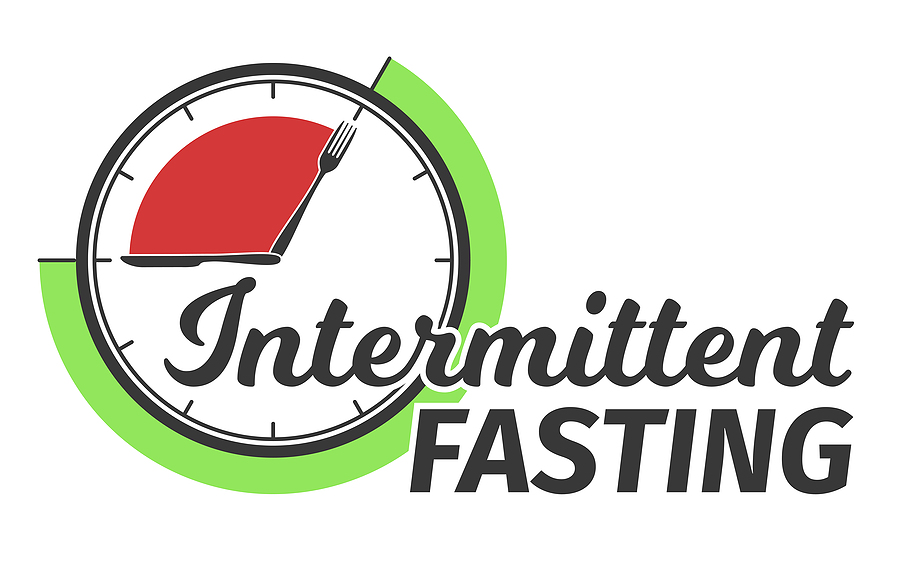Intermittent fasting continues to gain popularity. Because of this I thought it would be helpful to look at the benefits of intermittent fasting.
But before we examine the benefits, let’s understand what intermittent fasting is.
Intermittent fasting is an eating pattern that includes periods of eating followed by periods of fasting. And while there are several ways you can do this, the most common methods are the following:
The 8/16 Method – In this method you restrict your daily eating to an 8 hour period. Then fast for 16 hours. It is a daily program or eating pattern. The key is when you decide to take your first meal. Some people skip the breakfast meal and start eating around 12 noon or 1 pm. Their last meal would then be either 8 or 9 pm.
Personally I believe they would be better served by starting with breakfast at 8 or 9 am. Then making sure that their final meal for the day was at 4 or 5 pm.
The reason why I make this recommendation is that you will do a better job utilizing stored fat as an energy source during the sleep phase at night.
If you eat at 9 pm before sleeping, then the calories of your last meal will be used by your body, instead of your body using its stored fat. This process of using store fat while you sleep helps to reshape your body in a positive way.
Alternate Day Fasting – In this program you eat normal one day and then fast completely the following day. Most people make their dinner meal the last meal. Then 24 hours later start eating with their dinner meal.
A variation of this program is fasting once or twice per week instead of doing it every other day.
The 5:2 Intermittent Fasting – In this program you restrict your caloric intake to 500 to 700 calories for the day. And you do this on just two days per week. Most people make sure that the two days they reduce their caloric intake are not consecutive days.
Of all three programs, the 8/16 method is the simplest to follow. And the most sustainable to maintain.
Now that we understand the 3 main types of intermittent fasting, let’s look at the benefits.
Human Growth Hormone (HGH) – Most research in this area has shown that the increase in HGH can be as much as 5 fold. This helps to maintain muscle tissue and speeds the loss of fat. And for men it also has a positive sexual health benefit.
Insulin – Because insulin sensitivity improves, levels of insulin in the blood dramatically drop. Once this occurs, your body makes fat stores more accessible as an energy source to maintain your metabolism.
Cellular Repair – When your body fasts it then initiates cellular repair processes. One of these processes is called autophagy. This is where cells digest and remove old and dysfunctional proteins that build up inside our cells. This helps to reduce your risk for cancer and other diseases.
Gene Expression – Gene expression is effected by the foods we eat. When we fast our body clears its system of chemicals that can affect gene expression in a negative way. Plus fasting seems to stimulate gene expression that results in longevity and protection from diseases.
In addition to these general benefits of intermittent fasting, the following have also been observed:
-
Weight Loss
-
Lowering of Blood Sugar
-
Protection from Type 2 Diabetes
-
Reduction in Inflammation
-
Heart Health Improvements
-
Improved Brain Health
-
Anti-Aging Benefits
If you decide to start an intermittent fasting program, then please remember that any new program takes your body time to adjust. Initially you may feel hungry because your body is used to eating at certain times.
You may feel weak because your body needs to reprogram itself to get its energy not from the food you eat, but from the stored fat on your body.
You might have some brain fog in the beginning as your body figures out how to reprogram its ability to create energy from what is stored in your body.
It’s important to drink lots of water, which helps your body rid itself of the stored toxins that are released back into you system as fat stores are used. Coffee and tea are good to consume but do not add sugar to them.
Some people will skip breakfast and start with their lunch meal as their first meal, especially if they’re doing the 8/16 program. My preference would be to start your eating cycle with breakfast. But the key is to start the beginning of your eating cycle with the meal that fits your daily routine the best.
If you would like to learn more about the benefits of intermittent fasting, then here are links to three good articles on this subject:
https://www.lifeextension.com/magazine/2021/2/benefits-of-intermittent-fasting
https://www.healthline.com/nutrition/intermittent-fasting-guide#should-you
https://www.health.harvard.edu/blog/intermittent-fasting-surprising-update-2018062914156
Numerous studies has shown that intermittent fasting activates proteins and metabolic changes that help to rejuvenate our cells and organ systems. All while helping to prolong life and reduce the risk for chronic diseases like caner, dementia, and cardiovascular disease.
Blessing Lives Through Nitric Oxide Therapy!
Dan Hammer

Leave a Reply
You must be logged in to post a comment.